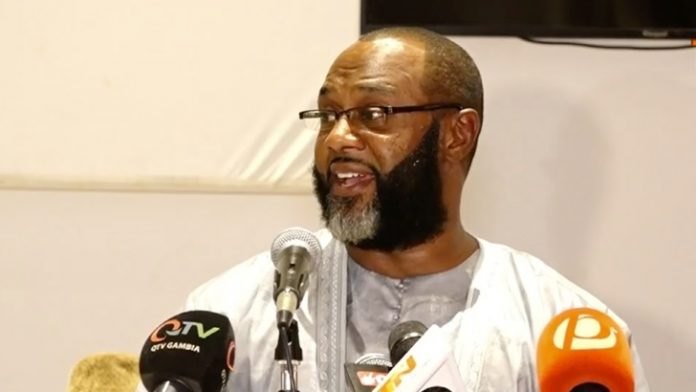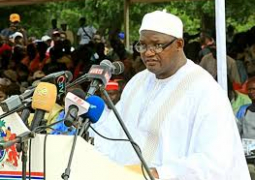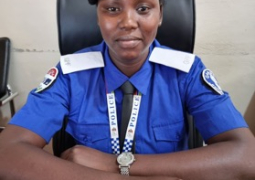
Fatoumata Boye, the complainant, who had earlier testified against the accused, was cross-examined by the defence counsel, Mr. Kijera to discredit her.
“You told this court that an agreement was drawn by a lawyer between you and the accused. Is that correct?” “Counsel yes” she answered.
She was then asked what impression it gave her when she had the document in her hand.
In response, she said that she did not trust what the accused told her.
She was asked whether she knew that transaction involving land should start with such kind of document.
She answered in the positive and affirmed that the accused even told her that for the transaction to start, they should have such a document and it would be prepared by his lawyer.
Asked whether she could remember the terms and conditions in the document, she responded that the property was sold to her, that she had given the accused 5 million dalasis and a car, and that the accused would give her the original document of the land on the 6th of February.
“Did the document state anywhere that if the accused did not perfect his side of the agreement you will be entitled for a refund?” the defence counsel inquired.
“No, that was not written on the document,” she replied.
It was put to her that this was not the proper forum to claim for such monies because she had agreed that she could claim the advance paid if the accused could not perfect the title.
She responded that when she came to know that the accused does not own the property she called him while she was in the U.S., and he told her that even if she came to The Gambia, she would search for him for one year and she would not see him.
She added that the accused blocked her number. She further adduced that this was why she reported the accused to the police.
“Do you still know that you can summon him in court action to get your money?” she was quizzed.
“I did not know that,” she replied.
It was also put to her that the so-called threat the accused made to her was a stark threat.
She replied that this was why she purchased a ticket and came back to The Gambia, adding that her brother had been searching for the accused for three months but to no avail. She told the court that when her brother was tired of searching for the accused, she went to the police and reported the matter.
It was put to her that in the presence of Exhibit “A” the action she took was against the right of the accused and this was humiliating to him.
She answered that this was not the case, noting that the reason why she came to court was to recover her money which she had been accumulating for years for it to go in vain like that.
“Since this document was prepared by a lawyer and seeing things happening, did you seek any legal advice?” counsel Kijera asked.
“Yes, I did. My brother went to Edward Gomez. Since he could not see the accused, he reported the matter to the police,” she said.
It was put to her that the accused never told her that she would never see him and that he would leave the country.
She responded that the accused said this to her, reminding counsel that she was on oath.
It was further put to her that the accused had much at stake to this token she was talking about. “If my money is a token, it has been with the accused for a year and he cannot give it back to me. It is not a token to me because I worked for it for years,” she told the court.
It was again put to her that the accused having his signature on the document shows that he had no intention of defrauding her.
In response, she said that the accused intended to defraud her because after signing the document, he was nowhere to be seen and even his lawyer could not see him.
“Were you forced by the accused to pay the monies you paid to him?” she was questioned.
“No, he was selling and I was buying. In buying and selling, there is no force,” she stated.
The case was adjourned to the 6th October 2020, for the second prosecution witness to testify.




